HISTORY
The development of the history of medicine in Croatia and first initiatives to establish the museum
History of medicine had become a topic of scientific research at the end of the nineteenth century, and the first decades of the twentieth century are characterized with a stronger impetus for its institutionalization and professionalization as an academic and scientific discipline. At the same time, with the rising awareness about national identity, a need to collect material heritage was being developed. First initiatives were mostly concerned with collecting and analyzing folk recipes as important sources for research on folk customs and treatments. During this period ethnology was being shaped as a scientific discipline within the Croatian Academy of Sciences and Arts.
At the end of the nineteenth century a Committee for Folk Life and Customs was being founded, and in 1896 the first ethnology journal Almanac for Folk Life and Customs of South Slavs [Zbornik za narodni život i običaje Južnih Slavena] was being established. First professional medical journals in national tongue regularly included articles on medico-historical topics, or calls to the readership to study history or collect objects related to professional heritage. Medico-historical papers written by Gržetić, Potočka, Derenčin, Joanović, Barlé etc. can be found on pages of the oldest medical journal Liječnički vjesnik.
Lujo Thaller
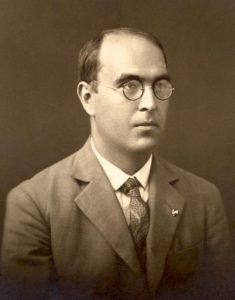 The interest that those aroused among the readership stimulated some physicians at the beginning of the twentieth century to form a group of medical historians among which the most prominent was the internist Lujo Thaller (1891 – 1949) who advocated for the introduction of history of medicine in the curriculum of medical studies at the School of Medicine in Zagreb.
The interest that those aroused among the readership stimulated some physicians at the beginning of the twentieth century to form a group of medical historians among which the most prominent was the internist Lujo Thaller (1891 – 1949) who advocated for the introduction of history of medicine in the curriculum of medical studies at the School of Medicine in Zagreb.
A series of articles by Thaller named History of Medicine in Croatia and Slavonia 1770–1850 published in Liječnički vjesnik became a foundation in medical history teaching.
Lujo Thaller was elected honorary professor of the history of medicine on 4 July 1927, and his lecture The Importance of Medical History on 5 November 1927 marked the beginning of history of medicine as an academic discipline at the Zagreb School of Medicine. The course will be cancelled in 1939, but the fight for its survival will continue in the next several decades.
The course will be cancelled in 1939, but the fight for its survival will continue in the next several decades.
Vladimir Ćepulić
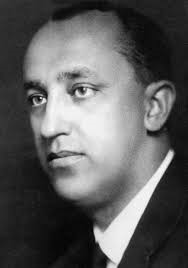 The impact of this first group of Croatian historians of medicine spread to other physicians, particularly during Vladimir Ćepulić’s (1891 – 1964) presidency of the Association. After his residency in phthisiology in Leysin and Hamburg, in 1920 Ćepulić organized and led the Department for Tuberculosis in Zagreb’s Foundation Hospital, and in 1921 in Zagreb he established the first tuberculosis dispensary in the continental Croatia.
The impact of this first group of Croatian historians of medicine spread to other physicians, particularly during Vladimir Ćepulić’s (1891 – 1964) presidency of the Association. After his residency in phthisiology in Leysin and Hamburg, in 1920 Ćepulić organized and led the Department for Tuberculosis in Zagreb’s Foundation Hospital, and in 1921 in Zagreb he established the first tuberculosis dispensary in the continental Croatia.
In 1934, he merged those two institutions into the Institute for Tuberculosis, which he led until the end of the Second World War. Until 1945 he was a full professor of phthisiology at the Zagreb School of Medicine. After the war, he was the chief of the Central Tuberculosis Dispensary, the director of the Hospital for Tuberculosis (1950–1958) and the head of the Department for the Fight against Tuberculosis within the city’s Hygienic Institute. He was the president of the Croatian Medical Association (1935–1945), which acquired its premises during his presidency, the fact that galvanized efforts to establish the Museum for the History of Medicine.
Ćepulić was temporarily given two rooms within the Croatian Medical Association building, until the permanent establishment of the Department for the History of Medicine at the School of Medicine which also included the Museum as its part.
Stanko Sielski
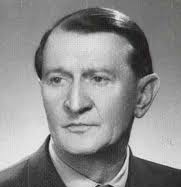 Apart from Ćepulić, Stanko Sielski (1891 – 1959), an epidemiologist, director of the newly established Institute for the Suppression of Endemic Syphilis in Banja Luka, was most involved in establishing the Museum.
Apart from Ćepulić, Stanko Sielski (1891 – 1959), an epidemiologist, director of the newly established Institute for the Suppression of Endemic Syphilis in Banja Luka, was most involved in establishing the Museum.
Sielski was a well-known expert and a special expert in the history of medicine and a prominent collector, who was elected curator of the Museum in 1942 in its founding. In Bosnia, he collected much of the exhibits of folk medicine presented at the Museum of Health History at the Croatian Medical Association.
Hrvoje Tartalja
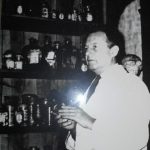 Dr. Sc. Hrvoje Tartalja (1907 – 1990), mag. pharm., the first professional pharmacist in Croatia and founder of the Institute for the History of Pharmacy with its associated collection (1952), the first institution of its kind in Yugoslavia.
Dr. Sc. Hrvoje Tartalja (1907 – 1990), mag. pharm., the first professional pharmacist in Croatia and founder of the Institute for the History of Pharmacy with its associated collection (1952), the first institution of its kind in Yugoslavia.
The title of Doctor of Pharmaceutical Sciences was conferred on him at the Faculty of Pharmacy, University of Paris (1957). He taught the history of pharmacy at the Faculty of Pharmacy and Biochemistry, University of Zagreb.
Permanent exhibition of the Museum in the Croatian Medical Association building
Museum for the History of Medicine was opened on 29 January 1944. Its permanent exhibition can be reconstructed in detail based on the Ćepulić-Sielski correspondence, papers published in Liječnički vjesnik, as well as in other magazines, papers and journals of the time. The major part of the exhibition consisted of objects and photographs pertaining to folk medicine, treatment procedures, objects used during oath-taking, notes, amulets, talismans, charms, treatment proscriptions, contents of the botanical store and a barber’s shop in which, apart from shaving, circumcision and some other procedures involving a razor were performed.
After the Museum was opened in 1944, Lujo Thaller was elected its manager, and he used it in his lectures in history of medicine, which was reestablished as a mandatory course in 1948.
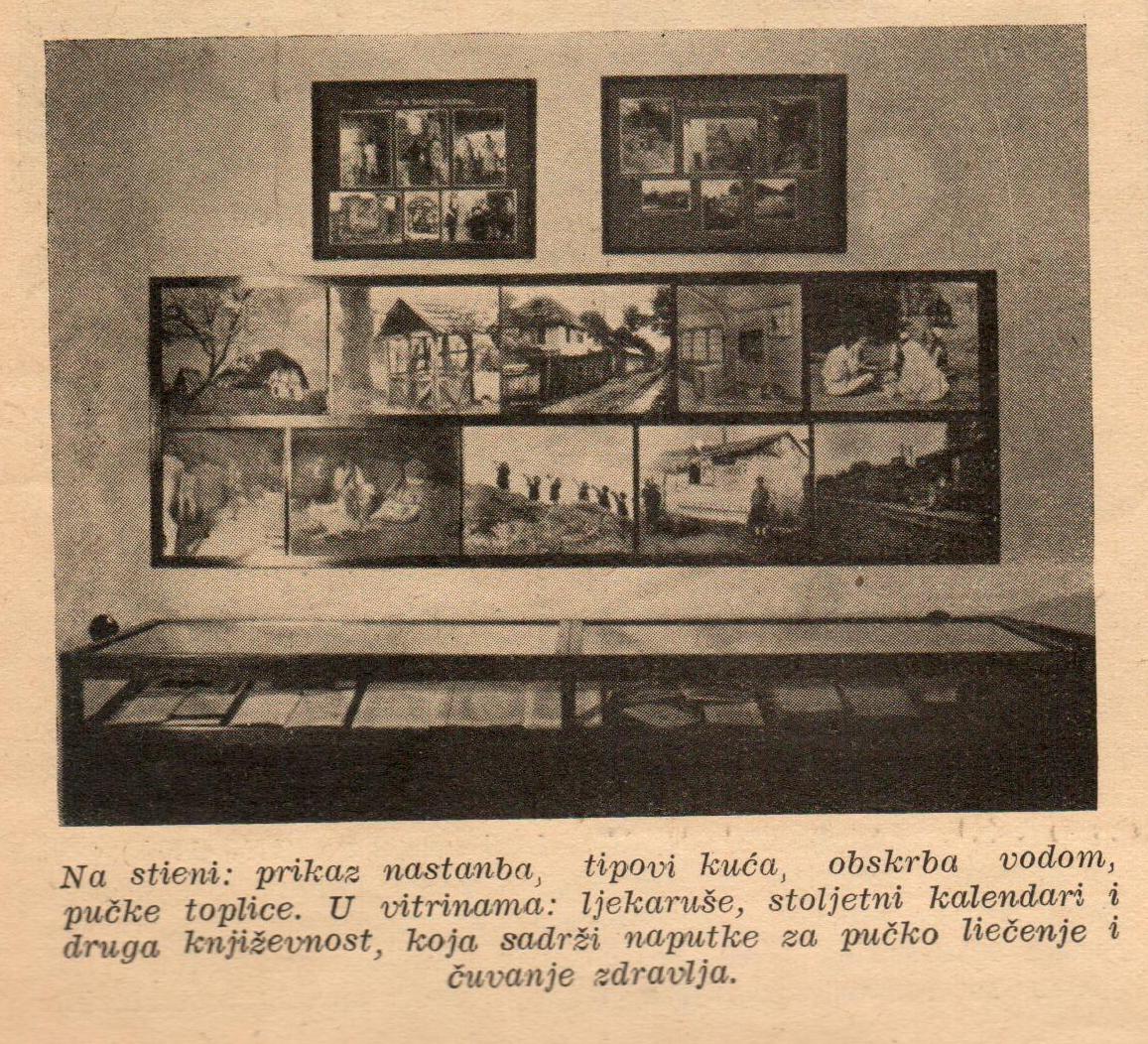
Collection for the History of Medicine and Pharmacy
In Zagreb, within the Division for the History of Medical Sciences of the Croatian Academy of Sciences and Arts, the Collection for the History of Medicine and Pharmacy is being kept for more than 50 years. It was founded by integrating two collections: The History of Pharmacy collection (founded in 1937) and the Museum for the History of Medicine in Croatia (founded in 1944 within the Croatian Medical Association).
In the 1960s both collections became the property of the Division for the History of Medical Sciences, where they have been kept until now. The collection was formed throughout the twentieth century, mostly due to enthusiasm of pharmacists and physicians interested in documenting the development of medicine, pharmacy and medical culture in Croatia. Among them the most prominent are: Prof. Vladimir Ćepulić, the founder of the Museum for the History of Medicine in Croatia within the Croatian Medical Association; Dr. Stanko Sielski, the first curator of the Museum for the History of Medicine; Mr. Pharm. Hrvoje Tartalja, the first professional historian of pharmacy in Croatia and the founder of the Institute for the History of Pharmacy with its collection; Prof. Lavoslav Glesinger, historian of medicine; Prof. Mirko Dražen Grmek, the founder of the Division for the History of Medical Sciences; and Prof. Biserka Belicza, the Head of the Division until 2005.
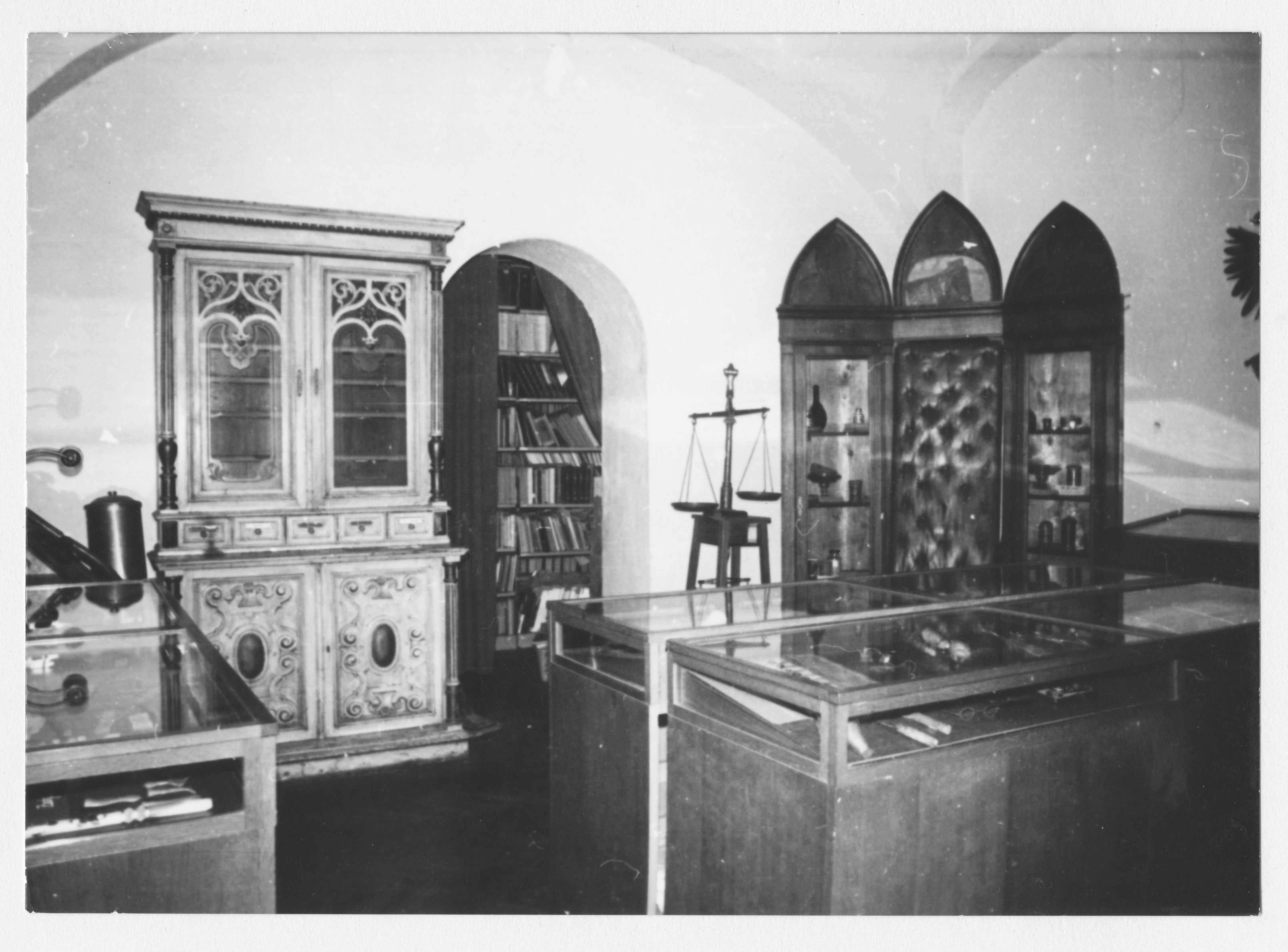
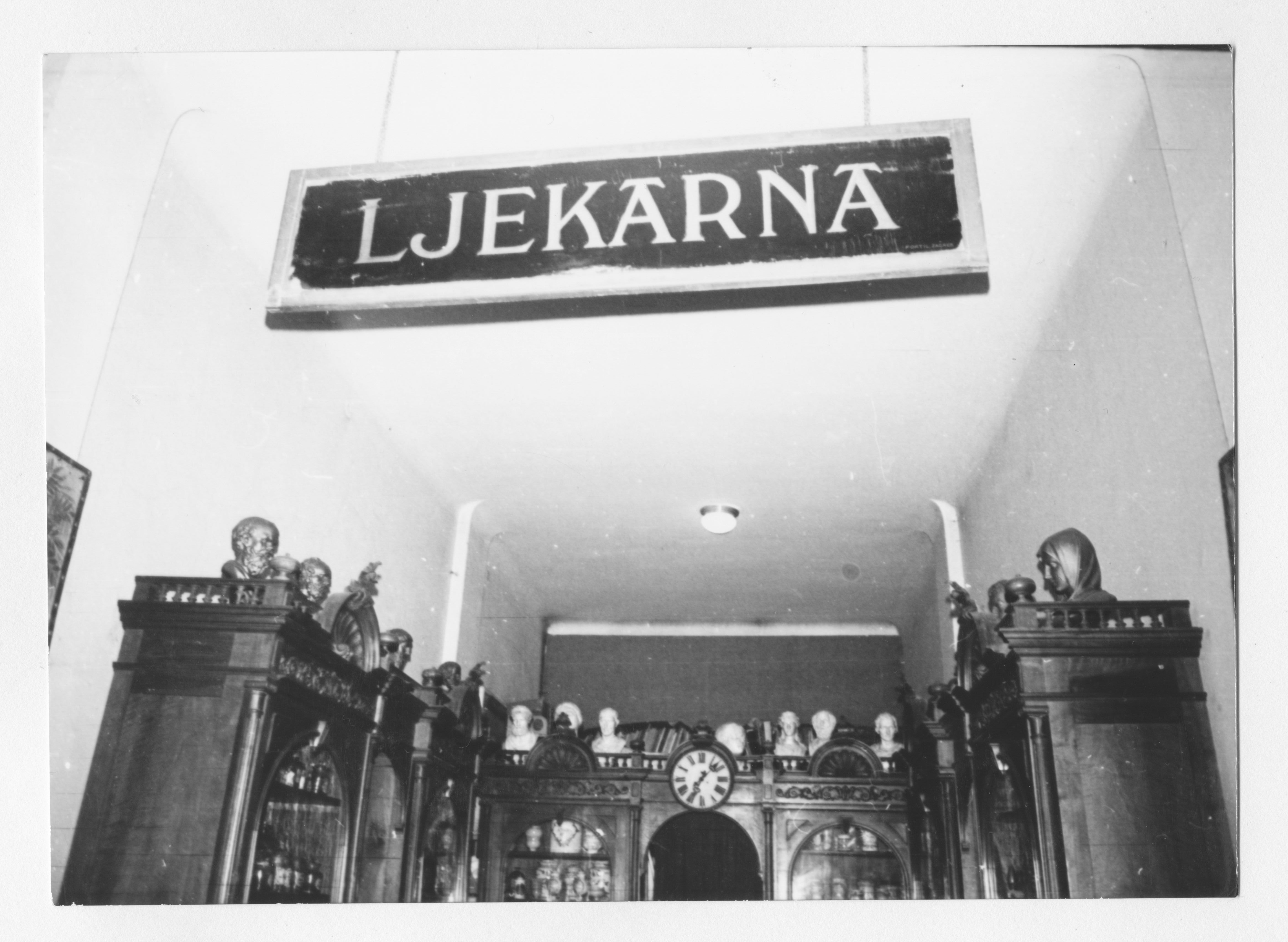
Division of History of Medical Sciences – guardian of medical and pharmaceutical heritage
The collection was cared for by the employees of the Division for the History of Medical Sciences, a unique institution in Croatia dedicated to professional research in the field of medical history. Although inadequately housed, throughout the years it was placed in the offices of the Division where it functioned as a little museum. Despite the fact that the visitors and students were regularly impressed by it, it was impossible to house it properly and give it professional treatment it deserved. The collection suffered through two relocations: from Opatička to Demetrova street, and then to Gundulićeva street. During the Croatian War of Independence it was put away, and despite Zagreb’s upper town being hit by missiles, not a single exhibit was damaged.
Today, one part of the collection is being stored at the offices of the Division for the History of Medical Sciences on the third floor of 24 Gundulićeva street, and the second part in the temporary repository on the ground floor of the same building.
The founding of the Croatian Museum of Medicine and Pharmacy
The current Head of the Division Prof. Stella Fatović-Ferenčić initiated in 2006 the founding of the Croatian Museum of Medicine and Pharmacy. The initiative was supported by the Department of Medical Sciences of the Croatian Academy of Sciences and Arts, whose secretary at the time was Zvonko Kusić, F.C.A. The Presidium of the Croatian Academy of Sciences and Arts supported in June 2006 the initiative by the Division and the Department to establish the Croatian Museum of Medicine and Pharmacy within the confines of the Division. This proposal was confirmed multiple times, and on 16 May 2011 in the premises of the Department of Medical Sciences the Initial Board officially decided to commence with the project.
Finally, Croatian Museum of Medicine and Pharmacy was founded by the Decree of the Croatian Ministry of Culture on 7 July 2014. Croatian Academy of Sciences and Arts decided to situate the Museum in the 350 m² space of an ex printing factory on the ground floor of 24 Gundulićeva street. Silvija Brkić Midžić, senior curator, was elected the director of the Museum on 2 March 2015. Secretary of the Department of Medical Sciences of the Croatian Academy of Sciences and Arts Marko Pećina, F.C.A. was elected the Head of the Museum, while Prof Stella Fatović-Ferenčić, the Head of the Division for the History of Medical Sciences, was elected Deputy Head of the Museum.
Croatian Museum of Medicine and Pharmacy is the seventh museum within the Croatian Academy of Sciences and Arts, and all its programs are being conceived and realized in collaboration with the Division for the History of Medical Sciences.
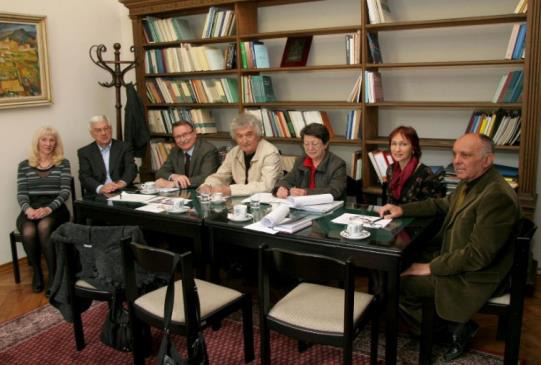
The Initial Board for the Museum, Department of Medical Sciences, Croatian Academy of Sciences and Arts, 16 May 2011
From left: Prof. Snježana Paušek Baždar, Prof. Slobodan Kaštela, Velimir Neidhardt, F.C.A., Prof Nikola Kujundžić, Ar. Aleksandra Stuparić, Prof. Stella Fatović-Ferenčić, Marko Pećina, F.C.A.

